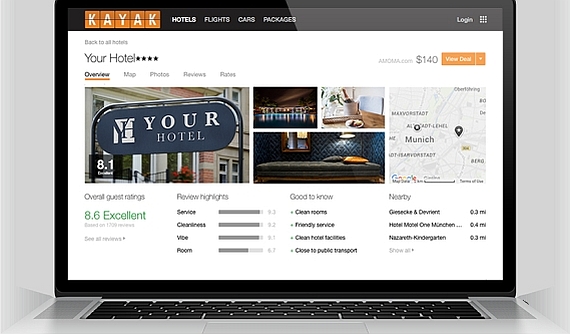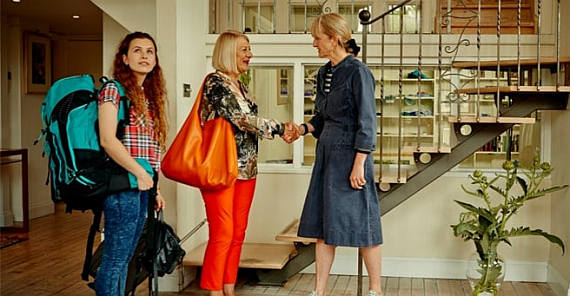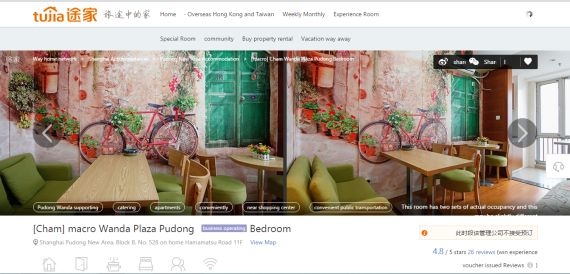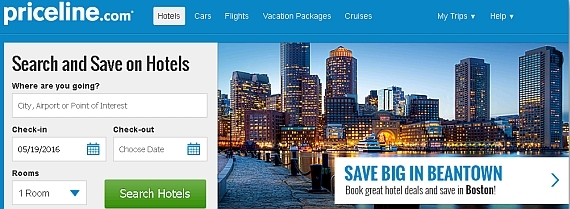
News & Stories
Brussels. The dependency of hotels on OTAs continues to increase: the three booking platforms Priceline/Booking.com, Expedia and HRS are dominating with a common market share of 92%, of which the Priceline Group takes over 60%.
Vienna. Austria's Council of Ministers is adapting two laws, effective from January 1, 2017: the national law on unfair competition as well as the price labelling law. Thereafter in the future, parity clauses which are stated in general terms and conditions of booking platforms will be declared as aggressive and therefore void business practices.
Munich. There is a proper plethora of ratings and reviews of every kind and everywhere. On platforms, which were created for this purpose or on portals, which do not want to have them. And the hotels are asking their guests for feedback too. The review specialist TrustYou, which has been in the market for eight years now, filters feedback from three million guests every week. However, which specific conclusions could be obtained this way is unknown to most people. Maria Puetz-Willems talked to Benjamin Jost, Chief Executive Officer of the renowned analysis platform in Munich, about the reasons why every hotelier should feverishly collect reviews of their guests.
London. The British hotel group GLH allows guests to choose the room they want to stay in even before booking it. GLH says that "Choose your own room" is the world's first online booking site that allows this service.
Beijing. The pressure is rising. After years of global expansion overriding local regulations, rental platforms of the Sharing Economy are now facing global opposition: States like New York are restricting rentals; cities like San Francisco are removing non-registered units from online listings. Heavy fines will hit operators and hosts. At the same time, 10 international mega-cities are now working together to establish common regulations P2P platforms will have to follow. And: 60 French unions representing hotels but also real estate agencies are officially suing Airbnb, Homeaway and even Booking.com for unfair competition and illegal activity. The global battle has started.
Vienna. Understanding on the part of the Austrian federal government came late, but the hotel industry is happy that the form of best rate guarantee, as used by the OTAs, has to be altered. In 2017, the best rate clause will be overturned by law.
Beijing. In the western world, Airbnb presents itself as the OTA giant par excellence. Now, powerful competition is coming from the Far East: Tujia.com. The company wants to expand its offer of private accommodations within the next half year, especially overseas. And Tujia is not only supported by well-known and financially sound real estate and investment companies but also by the government. Today, the platform offers 400,000 apartments at 294 destinations in China and 353 destinations outside of China.
The Hague. The new Dutch startup bidroom.com wants to disrupt Booking.com's and Expedia's "stranglehold" by connecting hotels directly with guests. But despite its fresh concept which leads hoteliers into a bidding competition to win over the future guest, its chances to actually harm the giant OTAs seem to be unrealistic.
Cologne. The global hotel solutions provider HRS has invested in the Australian company The Lido Group through a strategic partnership, thus continuing its global expansion in the corporate business.
Amsterdam. Though the first quarter 2016 was okay, Online Travel Agents share less enthusiasm for the next coming months. From Priceline and TripAdvisor to Expedia, all three leaders have reasons to believe that Q2 will not be as exciting financially. Their CEOs find a lot of reasons to blame the market and justify declining figures in the groups' own reports.




